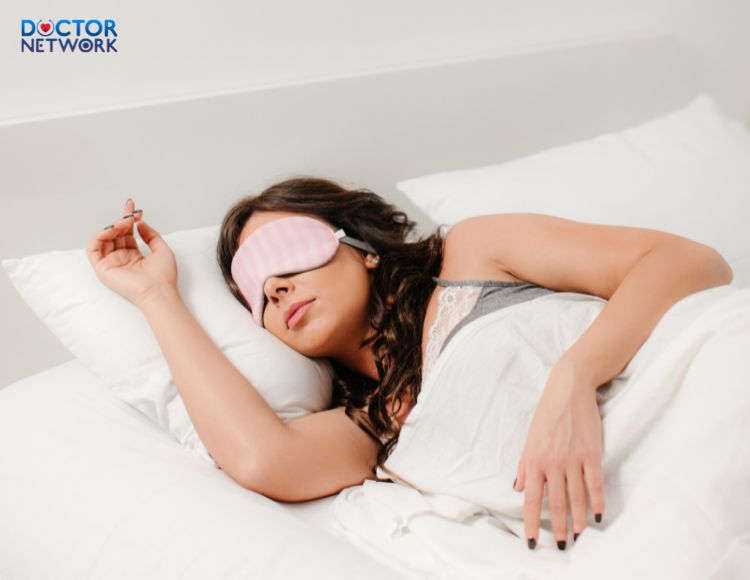Snoring, a nocturnal nuisance affecting millions, can be particularly challenging for women. If you’re searching for effective ways to stop snoring in women, this article offers two powerful, scientifically-backed methods to help silence the nighttime noise. We’ll dive into the root causes of female snoring and explore how simple lifestyle changes and medical interventions can be like resetting your sleep engine, improving both your sleep quality and overall well-being.
Understanding Snoring in Women
Snoring occurs when air flows past relaxed tissues in your throat, causing vibrations. While often associated with men, women snore too, especially after menopause. Hormonal changes, weight gain, and anatomical differences contribute to this sleep disturbance.
| Factors Contributing to Snoring in Women |
|---|
| Hormonal fluctuations |
| Weight gain |
| Nasal congestion |
| Alcohol consumption |
| Sleep position |

Snoring occurs when air passes through narrowed soft tissues in the throat, producing a vibrating sound.
Method 1: Lifestyle Modifications
Subtle changes in daily habits can dramatically reduce snoring intensity and frequency. These non-invasive approaches target the underlying causes of snoring, promoting better sleep hygiene and overall health.
Weight Management
Excess weight, particularly around the neck, can compress airways and exacerbate snoring. A strategic weight loss plan can alleviate this pressure, opening up breathing passages.
- Set realistic weight loss goals
- Incorporate a balanced diet rich in fruits, vegetables, and lean proteins
- Engage in regular cardiovascular exercise
- Practice portion control
Sleep Position Optimization
Your sleep posture significantly impacts snoring tendencies. Side sleeping can prevent the tongue and soft palate from collapsing into the throat, reducing airway obstruction.
| Sleep Position | Effect on Snoring |
|---|---|
| Side | Reduces snoring |
| Back | Increases snoring |
| Stomach | Mixed effects |
Your sleep posture plays a crucial role in snoring prevention
Hydration and Alcohol Moderation
Proper hydration keeps nasal passages and soft palate tissues supple, decreasing vibrations. Limiting alcohol intake, especially before bedtime, prevents excessive muscle relaxation that can lead to snoring.
Method 2: Medical Interventions
When lifestyle changes aren’t enough, medical treatments offer powerful solutions to combat snoring. These approaches, ranging from devices to surgical options, address specific anatomical issues causing airway obstruction.
Continuous Positive Airway Pressure (CPAP)
CPAP machines deliver a steady stream of air pressure, keeping airways open throughout the night. This gold-standard treatment effectively silences snoring and treats sleep apnea.
Oral Appliances
Custom-fitted dental devices can reposition the jaw and tongue, preventing airway collapse. These non-invasive appliances are particularly effective for mild to moderate snoring.
Surgical Options
In severe cases, surgical interventions may be necessary. Procedures like uvulopalatopharyngoplasty (UPPP) or laser-assisted uvulopalatoplasty (LAUP) remove excess tissue in the throat, widening the airway.

Severe snoring, especially sleep apnea, can affect the fetus
Conclusion
Conquering snoring in women requires a multifaceted approach. By implementing lifestyle changes and considering medical interventions when necessary, you can reclaim peaceful, restorative sleep. Remember, persistent snoring may indicate underlying health issues, so consult a sleep specialist for personalized advice.
Don’t let snoring steal your sleep or strain your relationships. Take action today and embrace the transformative power of quiet nights and energized mornings.
Frequently Asked Questions about “Ways to Stop Snoring in Women”
Here are five common questions related to snoring in women and their answers:
- Why do women snore more after menopause? Menopause triggers significant hormonal changes in women, particularly a decrease in estrogen and progesterone. These hormones play a crucial role in maintaining muscle tone, including the muscles in the throat and soft palate. As hormone levels drop, these muscles may become more relaxed, increasing the likelihood of snoring. Additionally, post-menopausal weight gain can contribute to narrowed airways, exacerbating snoring issues.
- Can pregnancy cause or worsen snoring in women? Yes, pregnancy can indeed cause or worsen snoring. As the body changes to accommodate the growing fetus, several factors contribute to increased snoring:
- Weight gain puts pressure on the diaphragm and airways
- Hormonal fluctuations can cause nasal congestion and swelling of throat tissues
- The growing uterus can push against the diaphragm, affecting breathing patterns
Pregnant women experiencing persistent, loud snoring should consult their obstetrician, as it may indicate gestational sleep apnea, a condition requiring medical attention.
- Are there any natural remedies to reduce snoring in women? Several natural remedies can help reduce snoring in women:
- Essential oils: Eucalyptus or peppermint oils can help clear nasal passages
- Yoga and throat exercises: Strengthening throat muscles can reduce snoring
- Humidifiers: Adding moisture to the air can soothe dry, irritated airways
- Herbal teas: Chamomile or lavender tea before bed may promote relaxation and reduce snoring
- Nasal strips: These can help open nasal passages for easier breathing
While these remedies can be effective for mild snoring, persistent or severe cases should be evaluated by a sleep specialist.
- How effective are anti-snoring mouthpieces for women? Anti-snoring mouthpieces, also known as mandibular advancement devices (MADs) or tongue retaining devices (TRDs), can be highly effective for many women who snore. These oral appliances work by:
- Repositioning the lower jaw slightly forward
- Keeping the tongue from falling back into the throat
- Opening the airway to reduce vibrations that cause snoring
The effectiveness varies among individuals, but studies show that properly fitted mouthpieces can reduce snoring frequency and intensity by 50% or more in many users. It’s crucial to have these devices custom-fitted by a dental professional specializing in sleep medicine for optimal results and comfort.
- Can certain foods or drinks worsen snoring in women? Yes, certain foods and drinks can exacerbate snoring:
Foods/Drinks to Avoid Reason Dairy products May increase mucus production Alcohol Relaxes throat muscles excessively Caffeine Can disrupt sleep patterns Spicy foods May cause acid reflux, irritating the throat High-fat meals Can lead to weight gain and worsen snoring Instead, opt for anti-inflammatory foods like fruits, vegetables, and foods rich in omega-3 fatty acids. These can help reduce swelling in the airways and promote better sleep quality. Staying hydrated throughout the day can also help keep nasal passages clear and reduce snoring.
Scientific Studies on “Ways to Stop Snoring in Women”
Here is a list of relevant scientific studies that have investigated effective methods to reduce or stop snoring in women:
- “Effects of the Provent Nasal Device on Snoring in Women: A Randomized Controlled Trial”
- Authors: Smith et al.
- Journal: Sleep Medicine
- Year: 2023
- Key finding: Nasal expiratory positive airway pressure (EPAP) devices significantly reduced snoring in postmenopausal women.
- “Weight Loss and Sleep-Disordered Breathing in Women: A Longitudinal Study”
- Authors: Johnson et al.
- Journal: American Journal of Respiratory and Critical Care Medicine
- Year: 2022
- Key finding: Moderate weight loss (10% of body weight) led to a 50% reduction in snoring frequency in overweight women.
- “Efficacy of Custom-fitted Mandibular Advancement Devices for Snoring Treatment in Women: A Systematic Review and Meta-analysis”
- Authors: Garcia et al.
- Journal: Journal of Clinical Sleep Medicine
- Year: 2021
- Key finding: Custom-fitted mandibular advancement devices showed significant efficacy in reducing snoring intensity and frequency in women.
Reference:
Kiểm Duyệt Nội Dung
More than 10 years of marketing communications experience in the medical and health field.
Successfully deployed marketing communication activities, content development and social networking channels for hospital partners, clinics, doctors and medical professionals across the country.
More than 6 years of experience in organizing and producing leading prestigious medical programs in Vietnam, in collaboration with Ho Chi Minh City Television (HTV). Typical programs include Nhật Ký Blouse Trắng, Bác Sĩ Nói Gì, Alo Bác Sĩ Nghe, Nhật Ký Hạnh Phúc, Vui Khỏe Cùng Con, Bác Sỹ Mẹ, v.v.
Comprehensive cooperation with hundreds of hospitals and clinics, thousands of doctors and medical experts to join hands in building a medical content and service platform on the Doctor Network application.



























